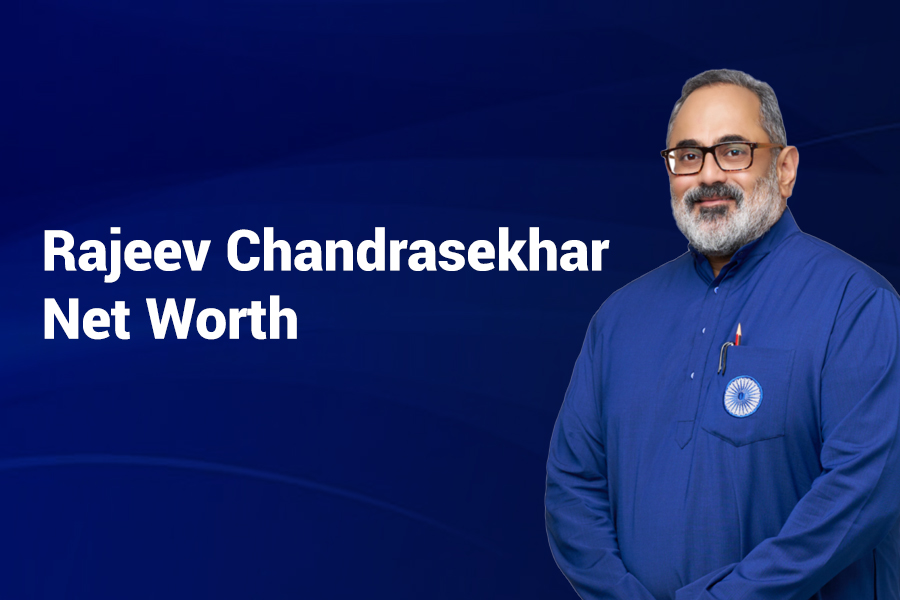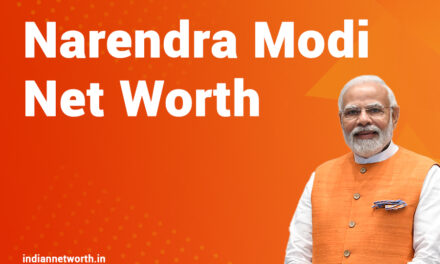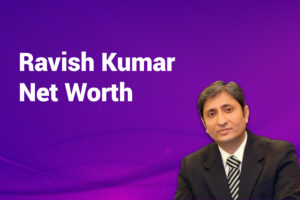Rajeev Chandrasekhar, a prominent Indian politician and entrepreneur, has made significant strides in both the corporate and political spheres.
As a member of the Bharatiya Janata Party (BJP) and the Union Minister of State for Electronics and Information Technology, he has created a legacy that spans across business, public service, and social impact.
In this article, we will explore his career, assets, liabilities, and the story behind his rise to prominence. You will also learn about his contributions to the tech industry and his current standing in Indian politics.
Early Life and Career
Rajeev Chandrasekhar’s journey from a young entrepreneur to a political figure is one of resilience and innovation. Born in 1969, he pursued his education in the United States, obtaining a degree in Electrical Engineering from the University of Arizona.
Chandrasekhar entered the tech industry with a vision to bridge the digital divide in India. He founded BPL Mobile (later known as Mobile One), one of the first mobile service providers in the country, which helped lay the groundwork for India’s mobile communications revolution.
His entrepreneurial success led him to several other ventures, and over the years, he built a diverse business portfolio. His expertise in business and technology eventually propelled him into the political arena, where he became an influential voice for technology and digital policy in India.
Rajeev Chandrasekhar’s Net Worth
Rajeev Chandrasekhar’s financial standing is as impressive as his career. As of recent reports, his net worth is estimated to be over ₹28 crore (approximately $4 million). This wealth is derived from a variety of sources, including his business ventures, real estate investments, and political earnings.
Key Assets and Investments
Chandrasekhar owns several high-value assets, including residential properties in some of India’s most prestigious locations. He has also accumulated significant investments in mobile and tech startups, reflecting his deep ties to India’s booming digital economy. Apart from these assets, his business empire also includes shares in multiple companies, which continue to generate substantial income.
One of his notable investments is in the mobile industry, where he was instrumental in shaping BPL Mobile, which became one of India’s leading mobile service providers. This strategic move established him as a prominent figure in the tech and business sectors.
Liabilities and Legal Challenges
Despite his wealth, Rajeev Chandrasekhar has faced several legal challenges throughout his career. Some of these include disputes surrounding his business dealings, particularly with respect to liabilities linked to former business ventures. These challenges, however, have not significantly impacted his overall wealth or business influence.
Role in Indian Politics
Rajeev Chandrasekhar’s political career has been marked by his advocacy for technological innovation and youth empowerment. Elected to the Rajya Sabha in 2006, he has consistently voiced his support for advancing India’s digital infrastructure.
As the Union Minister of State for Electronics and Information Technology, he has played a pivotal role in shaping policies that encourage technological advancements and improve access to the internet across the country.
His leadership in the field of digital governance has earned him recognition both domestically and internationally. His policies aim to create a more connected India, where digital services are accessible to all, regardless of geographical constraints.
Political Contributions and Vision
Chandrasekhar has often used his platform to advocate for the importance of digital literacy and the role of technology in transforming India’s economy. He envisions a future where India becomes a global leader in tech innovation and digital services, providing ample opportunities for economic growth and societal advancement.
His contribution to India’s national security in the digital realm has also been commendable, as he pushes for stronger cybersecurity measures and data privacy laws.
In addition to his focus on technology, Chandrasekhar has also made significant efforts to address issues of governance, transparency, and youth employment. His initiatives are aimed at creating a more inclusive and progressive society.
Lifestyle and Personal Life
While Rajeev Chandrasekhar is known for his professional achievements, his lifestyle is more private compared to other public figures. He enjoys a modest life, despite his considerable wealth, and maintains a focus on his work rather than indulging in extravagant displays of wealth. He resides in a luxurious property in one of India’s elite neighborhoods, though he remains grounded in his public persona. His personal life and political career remain largely free from scandal, contributing to his image as a responsible and respected leader.
Controversies and Criticisms
While Rajeev Chandrasekhar’s career has largely been characterized by his entrepreneurial success and political achievements, like many high-profile figures, he has also faced his share of controversies and criticisms. These issues have ranged from his business dealings to his political affiliations, and the public has often scrutinized his actions. However, Chandrasekhar has managed to maintain his stature in the Indian political landscape, largely due to his ability to navigate these challenges effectively.
Business Disputes
One of the key controversies surrounding Rajeev Chandrasekhar pertains to his business ventures. In the early days of his career, he was involved in a range of ventures, many of which are now well-known in the tech and communications sectors. However, his businesses have not always been free of disputes. The most notable among these is related to his early involvement in the mobile telecommunications industry, particularly with BPL Mobile (later known as Mobile One), where legal and financial complications arose regarding market competition and business practices.
These disputes stemmed from complex issues, including disagreements over service licenses, infrastructure investments, and market strategy. As a result, there were some allegations that the company was involved in unfair market practices. While the legal cases eventually settled, they sparked debates about the ethical practices of private companies in the growing mobile industry during the early 2000s. Despite this, Rajeev Chandrasekhar continued to thrive in business, and such legal issues did not have a lasting impact on his career.
Political Allegiances
Chandrasekhar’s political career, too, has been marked by some controversies, especially regarding his affiliation with the Bharatiya Janata Party (BJP). The BJP is often seen as a party that emphasizes Hindu nationalist ideals, and Chandrasekhar’s close ties with the party have made him a subject of both praise and criticism. His political opponents have often criticized his alignment with the BJP, suggesting that his corporate background and political rise are intertwined with the party’s centralization of power.
Moreover, his involvement in policy-making has not always been without controversy. As a member of the Rajya Sabha and later as Union Minister of State for Electronics and Information Technology, Chandrasekhar was instrumental in shaping India’s digital and IT policies. However, some of these policies have been criticized for favoring large corporations and technology giants over smaller players or the public interest. For example, his support for controversial data protection and cybersecurity regulations has faced resistance from certain sections of the tech industry, particularly smaller startups and privacy advocates.
Cybersecurity and Data Privacy Concerns
One of the significant areas where Chandrasekhar’s policy decisions have come under scrutiny is in the realm of cybersecurity and data privacy. As Minister of State for Electronics and Information Technology, he championed initiatives to strengthen India’s cybersecurity framework and regulate the digital space. While his efforts have been lauded for improving national security, critics argue that the implementation of these policies could have unintended consequences on individual privacy.
The introduction of certain cybersecurity regulations and the handling of data privacy laws have raised alarms among privacy advocates, who argue that such measures could lead to increased surveillance and government overreach. Critics claim that these laws could potentially stifle innovation by placing excessive restrictions on digital platforms and startups. Some have even questioned whether such regulations might infringe on civil liberties and the right to privacy, especially in an age where digital platforms collect vast amounts of personal data.
Chandrasekhar, however, has defended these measures, stating that they are vital for protecting India’s digital infrastructure from cyber-attacks and foreign threats. He has consistently emphasized the need for India to bolster its cybersecurity capabilities, especially with the growing dependence on technology and the internet. Despite the criticisms, Chandrasekhar’s proactive stance on cybersecurity has positioned him as a leading voice in India’s digital policy.
Allegations of Favoritism
Another controversy that has followed Rajeev Chandrasekhar involves allegations of favoritism toward certain business interests. As a person with substantial investments in technology and mobile telecom sectors, some critics argue that Chandrasekhar has used his political power to further the interests of his business ventures. While there is no direct evidence linking Chandrasekhar’s political influence to his business dealings, the perception of favoritism has persisted.
The allegations center around the idea that certain policies may benefit large corporations and multinational companies, potentially at the expense of smaller, independent players. For example, his role in shaping telecom regulations has occasionally drawn criticism for being overly friendly to major telecom companies. Critics argue that his involvement in the digital space could create conflicts of interest, where the line between public service and personal business interests becomes blurred.
Chandrasekhar has repeatedly denied these allegations, stating that his political actions and decisions are always made with the country’s best interests in mind, and that he aims to foster a level playing field for all players in the industry.
Future Prospects
Looking forward, Rajeev Chandrasekhar remains an influential figure in both the political and business arenas. His continued work in digital policy and governance positions him as a key player in shaping India’s technological future.
As the country moves further into the digital age, Chandrasekhar’s influence will likely grow, positioning him as one of the leading voices for India’s future in the global technology space.
Conclusion
Rajeev Chandrasekhar’s journey from a successful entrepreneur to a prominent politician is one of hard work, innovation, and dedication. His financial success, alongside his political influence, makes him one of the most powerful figures in contemporary Indian politics. With a robust net worth, strategic investments, and a clear vision for the future, Rajeev Chandrasekhar continues to shape India’s digital landscape.










